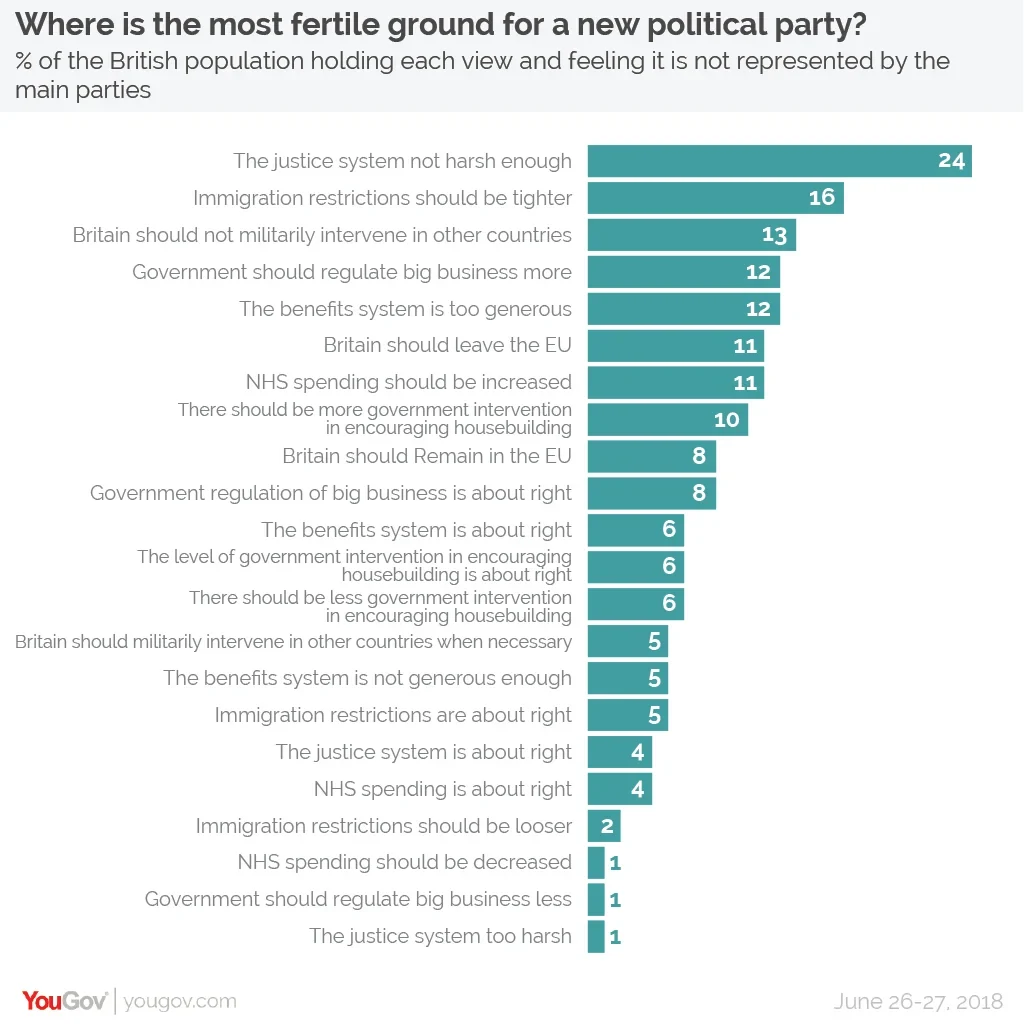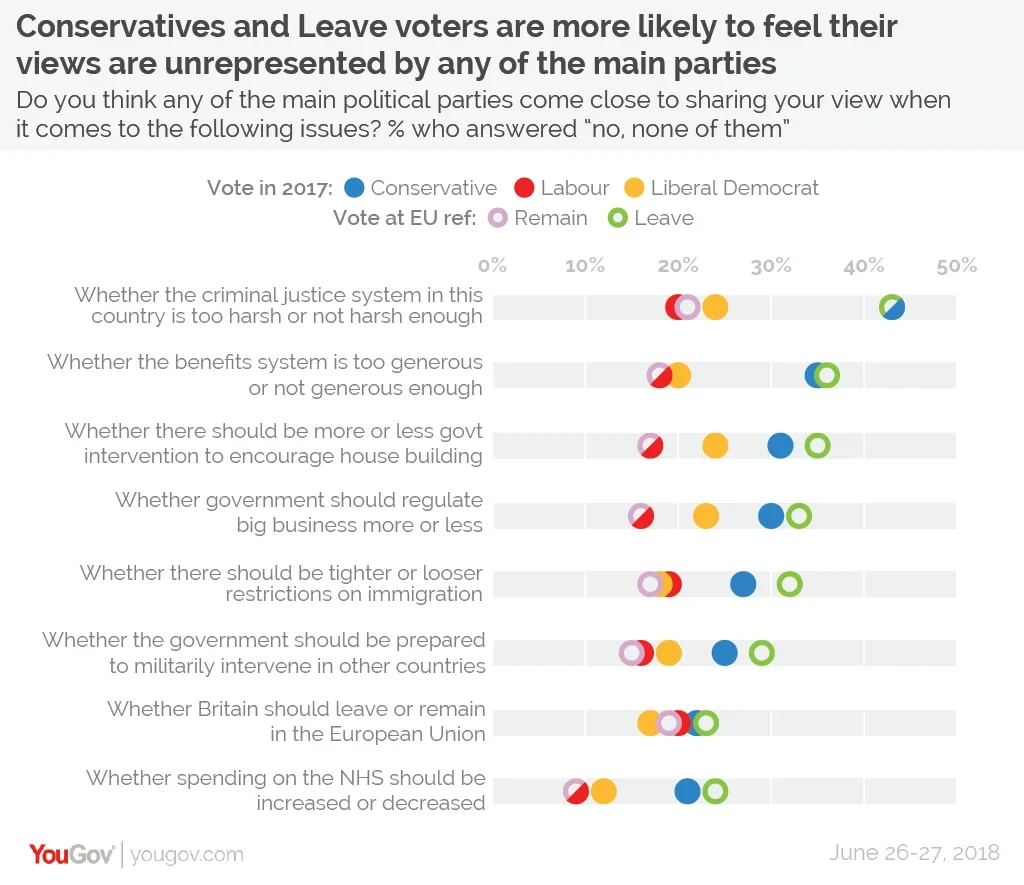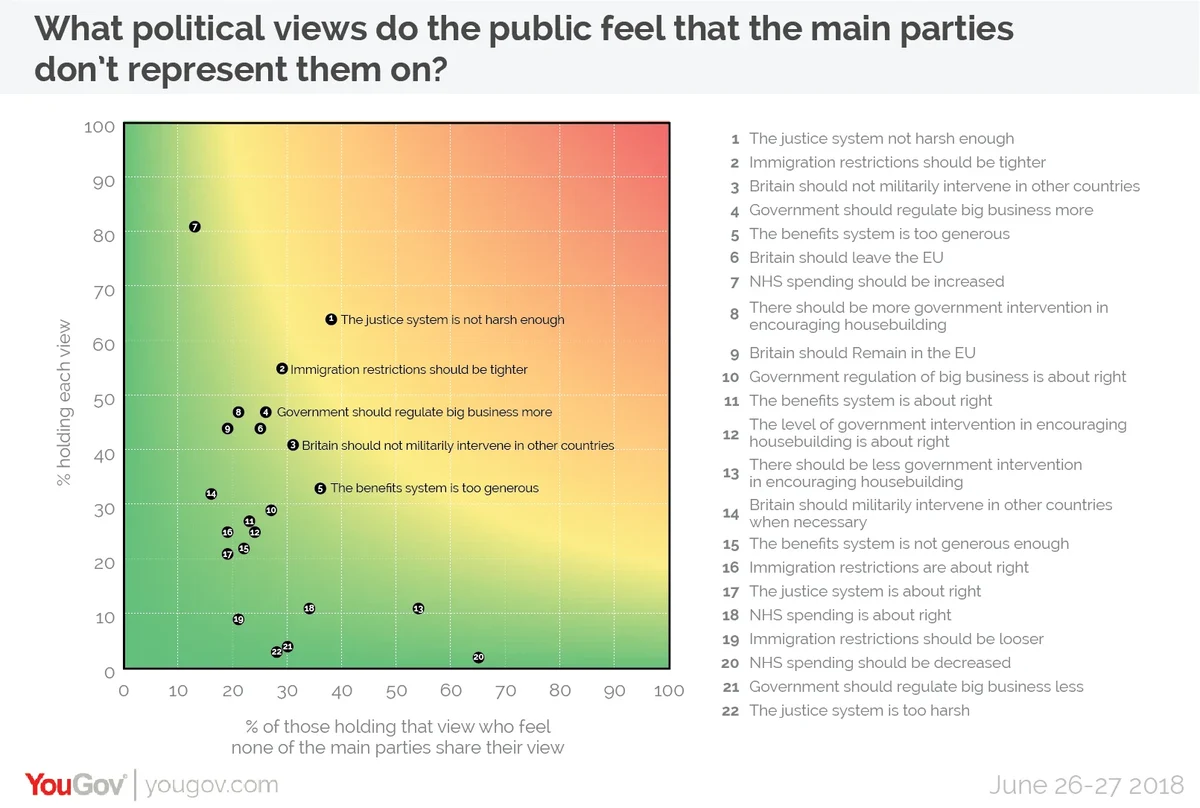A new YouGov survey examines which of their political views the public feels the main parties don’t represent them on
With the results of the 2017 general election seeing the highest number of votes for the two main parties since 1970, the nation seems to have largely returned to a two-party system.
Since that point, with the decline of the Liberal Democrats, UKIP and SNP and the political cleavages caused by Brexit, there has been speculation that now is prime time for a new third party. For many, the ideal place for that is seemingly in the political centre, which has been vacated as Labour has shifted leftward under Jeremy Corbyn and the Tories rightward under Theresa May.
But where is the most fertile ground for a new party in British politics? Where is there a gap in the market that is not currently being catered to by the existing political parties?
To test this YouGov asked Britons their view on a range of eight diverse policy areas and then asked whether they felt any of the main parties shared their view in those areas.
Tougher justice is the issue the most Britons feel unrepresented on
If you look purely at the political view where the highest proportion of holders report feeling unrepresented, you get “NHS spending should be decreased” at 65%. However, because only 2% of Brits hold this view in the first place, a new party seeking to attract voters wouldn’t be able to make much headway with this policy.
A better measure is to combine the proportion of people who feel unrepresented in a certain view with the proportion of people who hold that view overall to see which unrepresented views are held by the largest proportion of people.
Under this measure one political belief stands out above the rest – that the justice system is not harsh enough. Two thirds of Britons hold this view (64%), of whom 38% believe none of the main parties share their view on the matter. Combining these two figures shows that almost a quarter of the population (24%) hold this view and feel unrepresented in doing so.

In second place is the view that immigration restrictions should be tighter, with 16% of Brits holding this view but feeling that none of the main parties do. In third comes the belief that Britain should not militarily intervene in other countries when necessary (13%) and in joint fourth on 12% each are the views that government should regulate big business more and that the benefits system is too generous.
Some of the views in the top five might traditionally be considered right wing (harsher justice, tighter immigration, stricter benefits) and the others left wing (non-intervention, greater big business regulation).
Leave voters less likely to feel represented than Remainers
The data also shows that Leave voters are more likely than Remain voters across the board to feel unrepresented in their views. Likewise, those who voted Conservative in 2017 are more likely than Labour and Liberal Democrat voters to feel that none of the main political parties represent their views.

This presents a particular opportunity for any new party that would be looking to occupy a space in the political landscape that would appeal to Leave voters – whilst Leave voters flocked to the Conservatives in 2017 due to their status as the party of Brexit, once Britain has left the EU those Leave voters who don’t feel represented by any of the main parties will be up for grabs.
Of course, successfully breaking into the political mainstream is a notoriously tricky business in the UK political system, especially if your goal is to win seats in the Commons and eventually enter government.
With many centrist voters hoping the EU referendum might spawn a successful new pro-EU centrist party, it seems that actually the referendum result might prove more fertile to the successors of the Leave campaign.
Photo: Getty











